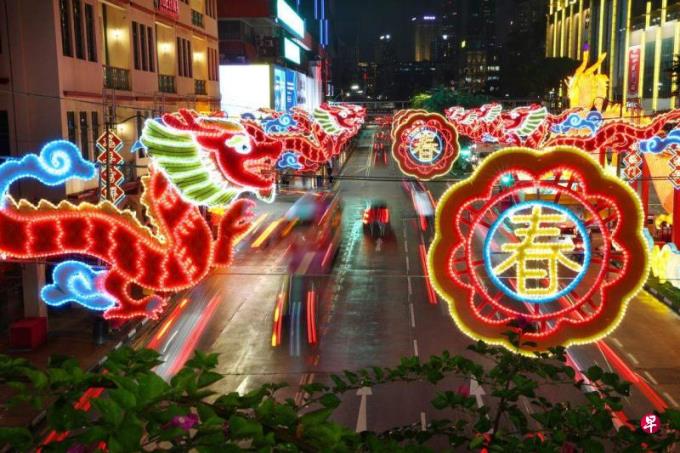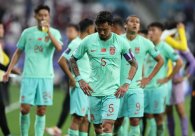
We should think deeply. If the current trend continues or even accelerates, in addition to losing international advantages, are we also taking the risk of valuable heritage carried by many mother tongue, including culture, tradition and values?How will this affect our entire society and the spiritual appearance of the people?It is a wise approach to try to find a balance point in time.
Recently, several old friends have dinner and talked about the topic of Chinese and Chinese. One of them talked about something that happened to him, which was amazing.
One day, he teased his five -year -old granddaughter to play and listened to her in English, so he told her to speak Chinese.The baby who is still in the kindergarten is so grabbing: "I am a Singaporean, not Chinese, why do you want to speak Chinese!" The old friend said, it was really embarrassed at the time.
Everyone laughed naturally, but after laughing, it didn't feel taste.In the kindergarten, I have rejected my mother tongue. Is it still necessary to enter elementary school?Why did this five -year -old baby say this to Grandpa?Obviously it is a mistake in cognition.Although Tongyan has no advice, it is difficult to believe that it is her own cognition.The old friend said he didn't know why.Others speculate that this is the result of the impact of the major environment.But for this baby, the environment is probably family and kindergarten. In addition, it is unlikely to be "influenced" by others!A naive and romantic baby says such a "nonsense" words. If it is not at all, it is not any direct or indirect "teaching", it is also incredible.
In our cognition, the Chinese should understand their mother tongue. According to educational policies, Chinese is the mother tongue.But the reality is significantly more complicated.In the past, Chinese people with different natives used dialects as family terms. Children who grew up in such families were actually dialects, such as Fujian dialect, Chaozhou dialect, Cantonese, Hainan dialect, Hakka dialect and so on.Those who entered the Chinese school later accepted Chinese as a mother tongue.However, those who enter the British school can only take the dialect at home as a mother tongue and cannot agree with Chinese.
major psychological and cognitive transformation
After 1979, the status of Chinese as a mother tongue in Chinese was determined (at least in school), but after decades of evolution, it seems that the problem has changed wonderful changes.The most prominent thing is that English has become a family term for almost all young families.At least 70 % of the family terms of the Chinese small life should be English.For them, family terms are actually mother tongue, because as soon as they get out of their mother, their parents speak English with them.
This development shows that the Chinese speaking campaign has not taken root in most young Chinese families over the years, but has been marginalized.This is the biggest challenge encountered by bilingual education now.Someone is also worried that we will eventually go to a single -language (English) society.Such concerns are not worried.Isn't the words of the baby be shocked?
As far as personal social life experience is concerned, the "logic" of this girl seems to be common.This simple logic is: Singaporeans should speak English, otherwise they cannot become Singaporeans.But Singaporeans do not have to understand "mother tongue" because Chinese is said by Chinese.The logic is simple, but the change is huge, it is a very major psychological and cognitive change.It should have been ashamed of not understanding the mother tongue, but now it is regarded as a foreign language. Instead, I am ashamed of not understanding English.
From a historical perspective, this is a strange change.Because in the colonial era, the Chinese desperately wanted to retain their mother's language and culture, so they spent the greatest effort to run Chinese schools, and the British colonists could never make the Chinese Yinghua.The same is true of Malay and Indians, so in the past, we also had Malay and Tamilwin School.Paradoxically, what the colonists can't do are now done by ourselves.Although the government stipulates that students from all ethnic groups must learn "mother tongue" (that is, Chinese, Malay, and Wimili), they have always been bitter and persuaded to learn their mother tongue, but in the face of the pressure of many parents, they require the lower level of mother tongue.Because their children have encountered problems in their mother tongue learning.
Under the bilingual policy, English has become the teaching language of the school. The mother tongue is only a course, called the second language. Most students speak English at home, and the exclusion of the mother tongue is "natural".People will be in the comfort circle of their own lives. As for the consequences in the future, maybe only a few scholars will think.On October 31st last year, Dr. Zhang Jiaqi, a researcher at the Institute of Policy Research, State University of Singapore, published an article in the Straits Times entitled that many Singaporean people paid the price of English in EnglishEssenceShe pointed out that mastering English has made us competitive in the world, but in all fairness, we pay the price.Chinese people are good in English, but they gradually lose their grasp of their mother tongue.Therefore, we must take a look at the price we pay in time to see if we can find the appropriate balance point.
Identification Dilute
Dr. Zhang quoted the survey results of race, religion and language made by the institute in 2013 and 2018, respectively.These two surveys show that the English ability of Singaporeans has risen, but the mother tongue ability has declined.According to the 2018 survey, only 39%of Chinese interviewees said that they could speak very good Chinese. The ratio of the Malay group and the Indian group was 66%and 45%, respectively.This illustrates the fastest loss of mother tongue in Chinese.
What does this loss mean?Dr. Zhang believes that in today's world, understanding and mastering a variety of languages is a very valuable skill.We may add that this is actually Singapore's existing multi -language advantage.Secondly, she said that the ability of mother tongue is getting worse and worse, which means that our identity recognizes dilution, because language is the carrier of culture.The way we used to express in the past is to lose the root of our culture.Because there is actually no "Singapore culture" that can be described.
However, for the average person, culture is very abstract after all. Anyway, I live very comfortably now, and I don't think there are any problems.It is worth worrying about what will happen to this evolution of Yidian?Now we seem to focus on the Chinese teaching issues that are focused on the school, such as how to use technology to assist teaching, how to make the text more vivid, etc., but the key issue is that the mother tongue has lost its function in the family and society.Gradually used to living in a single language comfort circle.It is difficult to imagine that when the Chinese and dialects of the infant tide after the war disappear, what kind of fate will the "mother tongue" encounter after the generation of English -speaking generations.
Dr. Zhang's article does not seem to cause any response in the world of English. This may be anti -evidence. The mother tongue has been marginalized, and the mentality of understanding English is common.In the Lianhe Zaobao speech edition, it stirred a little ripple.On November 7 last year, the exchange station published a letter from the reader Dai Wenxue's approach to English. On the 16th of this month, the remarks version of this month published the articles of the Chinese Department of Singapore's National University of Singapore.The level of decline may even slowly disappear.
Gradually Lost Multi -language advantage
This is an important issue that affects the future of the country.English is getting stronger and stronger, but the status and foundation of various mother tongues are getting weaker. In the long run, Singaporeans will lose their original multi -language advantages.In today's world, this advantage allows us to meet the source, and can play the role of the world's hub and east -west cultural intersection.Giving up this advantage is like self -destroying the Great Wall.
In the process of stepping into the monospest, many Chinese people unknowingly committed a cognitive fallacy, thinking that as long as we understand English, we can pass the world.In fact, it really becomes an English single -language society, we are just a vassal of the English worldEssenceAs a diverse ethnic society, we should have created a nation and society that can speak more words.
We should think deeply. If the current trend continues or even accelerates, in addition to losing international advantages, are we also risking the valuable heritage of a lot of mother tongue, including the risk of culture, tradition and values?How will this affect our entire society and the spiritual appearance of the people?It is a wise approach to try to find a balance point in time.
The author is a former journalist, a former member of the Congress



